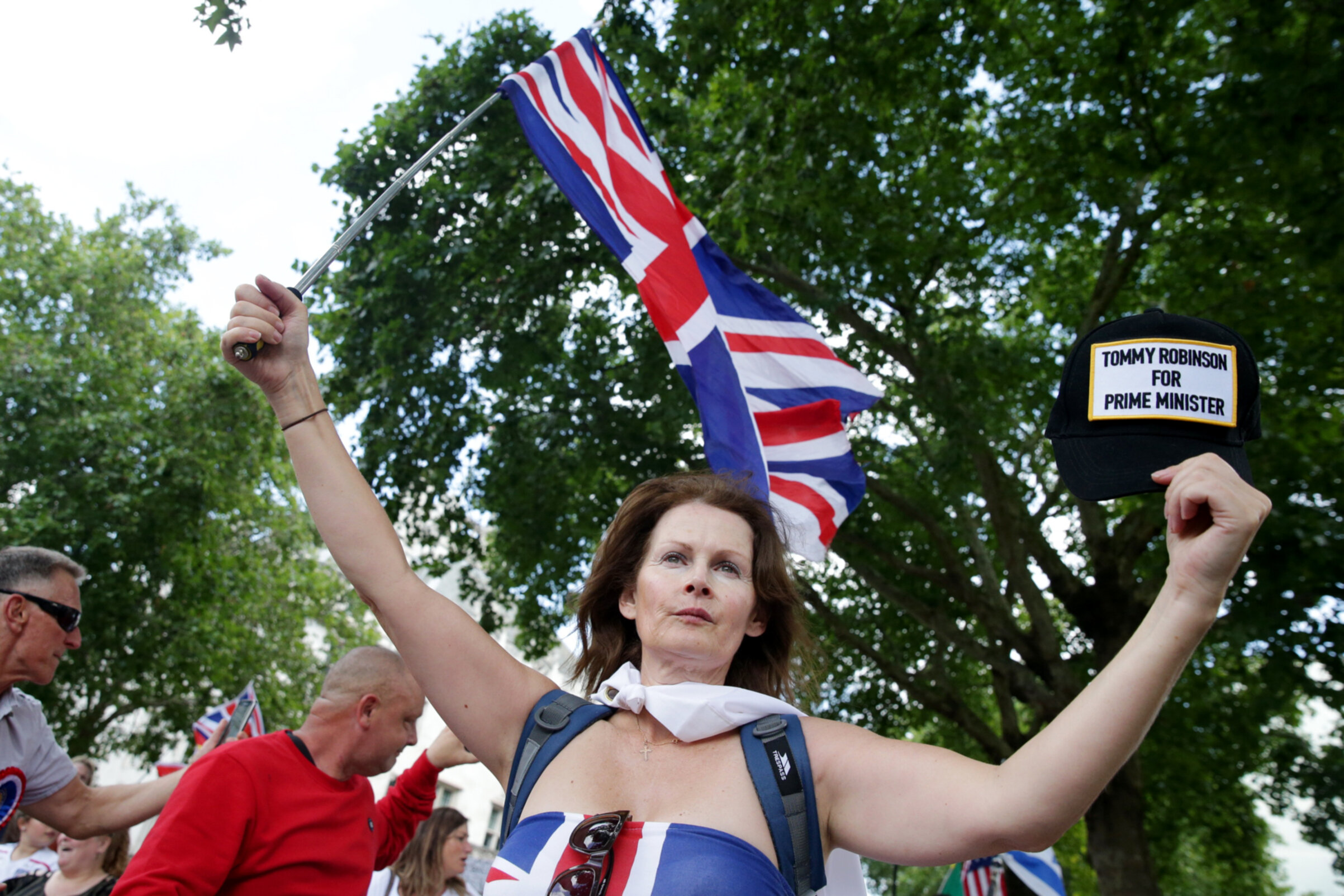
Left traditionalists and right-wingers alike have often used the phrase “identity politics” to deride the concerns of minority groups and discount the importance of their rights.
For left traditionalists, “identity politics” are a divisive distraction from the aims of beleaguered mainstream social democratic movements; for the right, “identity politics” are a vehicle for virtue-signalling snowflakes.
Common to both of these views is the conviction that “identity politics” diminishes, and is somehow separate from, the position of the white working-class majorities in western societies.
In its recent report, “Fear & Hope 2019”, polling by anti-extremism group Hope Not Hate shows how identity politics are held by all parts of society, particularly the white working class.
This is clearest in the attitudes of survey respondents towards feminism.
“Those who most oppose immigration and multiculturalism frequently adopt a defensive position about their own identity, [are] increasingly culturally anxious and fragile about challenges to their privilege, and [are] more likely to say that feminism marginalises men,” the report states.
Its research shows that men’s rights and anti-feminism have “increasingly become a slip road to the far right, appealing to young men feeling emasculated in an age of changing social norms”.
We’ve also seen this trend online – with white supremacy being linked to incel (involuntary celibate) groups and general misogynist forums mainly frequented by young men.
Groups labelled “anti-establishment pessimist”, “hostile Brexiteer”, “Tommy Robinson supporters” and “Nigel Farage supporters” in Hope Not Hate’s survey felt “feminism has gone too far”. This was linked to their identity and worldview – those who expressed such views were more likely to pit themselves against the “liberal elite”, and be defensive of their own identity.
“Those who are frustrated about issues of race, immigration and multiculturalism are also angry about changing social norms, and fear being unseated by those fighting for equality,” says the report.
Those surveyed who showed the strongest support for the convicted criminal Tommy Robinson are characterised as “almost all white British, working class, with low levels of education and little access to opportunity”.
Not only do they oppose immigration and multiculturalism, but they deny the reality of climate change and believe feminism oppresses men.
This jars with how the English far right has recently attempted to portray itself. As academics Cynthia Miller-Idriss and Hilary Pilkington observe in their 2018 book Gender and the Radical and Extreme Right, “newer radical-right groups argue that western democratic traditions and values include supporting women’s rights, a wider range of sexualities, and tolerance toward the LGBT community”.
This stance is used as a progressive veil to attack Islam and migration, and recruit women to the cause. Robinson typified this approach when he pledged ahead of the European elections to donate his MEP salary, if he won, to victims of sexual abuse.
The English Defence League (EDL), a far-right Islamophobic group once led by Robinson, was part of this trend. At its height, the group displayed an openness to women and gay supporters; there was even an EDL LGBT division.
“There’s a far greater focus on terrorism, what they call ‘jihadi rape’, and the oppression of women,” Pilkington told me when I interviewed her in April 2017. She had spent more than three years from 2012 with grassroots activists to write an ethnography of the EDL, Loud and Proud: Passion and Politics in the English Defence League.
As with other right-wing movements in Europe, the EDL used gender equality and pro-LGBT arguments “as a way of ‘othering’ Islam – saying ‘this is something that we all agree is wrong’,” Pilkington observed.
This trend is evident in far-right street movements in Britain today. According to a rough head count, attendees at a recent right-wing UK Yellow Vest rally that I reported on during the London pro-Brexit protests on 29 March were at least equally or majority female.
Yet the exploitative and superficial nature of this new direction is exposed by the far-right’s repulsion towards “liberal” shifts suggested in Hope Not Hate’s polling. Identity trumps inclusion in this particular survey at least, showing that any tactics to appear pro-equality by the far right are at odds with its true instincts.



